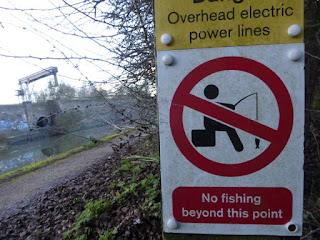Friday, 10 February 2017
Tuesday, 7 February 2017
Bullied. What's the worst that happens next?
I'm listening to a lot of terrifying stories this week on the radio, so I guess we're designated a mental health / kids / bullying awareness week?
Anyway, I'm not hearing, as any part of a strategic approach, the words Home Education.
Maybe I'm listening to the wrong channels. Or maybe I'm deeply out of touch with humans on Planet Earth. No-one here speaks my language. My language is mostly, I'll follow my own impulse, thank you very much. And I thought lots of people spoke that.
Hmm. Home education, then.
Now I've never got the idea I hear repeated again and again - that if you send a child into a miserable place, day after grinding day - that the brutality and unhappiness they meet will equip a child for adult life. It's the idea that a brusied and damaged child will be able to handle anything, because they've already been beaten up.
It doesn't sound like a very convincing argument. Maybe we should try institutionalising a different approach? One where we don't harm kids and, um, we don't go after each other in the workplace either. We work together like reasonable and respectful people, beginning to end, kid to adulthood.
But I can only tell you this story. That one day in our home ed play group, a child from school came to visit everyone; his mother was considering withdrawing him from school, where he was being bullied to hell and back.
Maybe she'd already moved schools, or tried to fix the system, I don't know. But the child sat on the swings and nothing bad happened. Except maybe some feral home ed kids came up and asked whether he wanted to build a space rocket, that sort of thing.
Then he went home happy, and his mother sent in the deregistration letter and he became one of us - the ones people like to call the invisible children, unseen and unschooled - and maybe he gained a couple of IGCSEs, with a full circle of strange friends, and a place at university, or a job, or setting up his own business. Something terrible like that. Because it's probably the worst that can happen, right?
Well, I know you didn't ask for it, but you read this far, so my advice is, find your local group, meet them, and talk to them.
Yes, you will meet the feral, the bonkers and the strange. And the awkward and the shy and the warm and the funny and the erudite and the clever. You'll meet people you still call friends, 15 years on, and you'll meet people you never want to see again. A bit like life. But bullying? I've only ever met that in schools.
Anyway, I'm not hearing, as any part of a strategic approach, the words Home Education.
Maybe I'm listening to the wrong channels. Or maybe I'm deeply out of touch with humans on Planet Earth. No-one here speaks my language. My language is mostly, I'll follow my own impulse, thank you very much. And I thought lots of people spoke that.
Hmm. Home education, then.
Now I've never got the idea I hear repeated again and again - that if you send a child into a miserable place, day after grinding day - that the brutality and unhappiness they meet will equip a child for adult life. It's the idea that a brusied and damaged child will be able to handle anything, because they've already been beaten up.
It doesn't sound like a very convincing argument. Maybe we should try institutionalising a different approach? One where we don't harm kids and, um, we don't go after each other in the workplace either. We work together like reasonable and respectful people, beginning to end, kid to adulthood.
But I can only tell you this story. That one day in our home ed play group, a child from school came to visit everyone; his mother was considering withdrawing him from school, where he was being bullied to hell and back.
Maybe she'd already moved schools, or tried to fix the system, I don't know. But the child sat on the swings and nothing bad happened. Except maybe some feral home ed kids came up and asked whether he wanted to build a space rocket, that sort of thing.
Then he went home happy, and his mother sent in the deregistration letter and he became one of us - the ones people like to call the invisible children, unseen and unschooled - and maybe he gained a couple of IGCSEs, with a full circle of strange friends, and a place at university, or a job, or setting up his own business. Something terrible like that. Because it's probably the worst that can happen, right?
Well, I know you didn't ask for it, but you read this far, so my advice is, find your local group, meet them, and talk to them.
Yes, you will meet the feral, the bonkers and the strange. And the awkward and the shy and the warm and the funny and the erudite and the clever. You'll meet people you still call friends, 15 years on, and you'll meet people you never want to see again. A bit like life. But bullying? I've only ever met that in schools.
Thursday, 2 February 2017
We have bookshelves of dirty words
In fact, we have a whole bookcase dedicated to them. Unsavoury, socially undesirable, rotten-to-the-core dirty words. I want my children to read them. ALL OF THEM.
Prompted - not by the recent kerfuffle over 'let's disappear the word woman on the grounds that it discriminates against intersex and transgender men' but by Daughter Number One's discovery of the gender stereotyping implicit in the English Department GCSE Language class.
In Daughter's English Language class - of all places - we discover that no-one bothers much about peddling ideas such as girls have good technical skills in painting their nails, adoring Barbie dolls, and putting ickle circles over their ickle letter i.
In this household, this woman-at-keyboard has long held the view that English departments should be about educating your critical thinking about language. Better than being an unquestioning purveyor of the worst kind of it.
Entirely co-incidental then, that I hear a kerfuffle today over whether we should be pregnant women or pregnant people.
Back to source, here is the paragraph in the British Medical Association's A guide to effective communication: inclusive language in the workplace
Pregnancy and maternity Gender inequality is reflected in traditional ideas about the roles of women and men. Though they have shifted over time, the assumptions and stereotypes that underpin those ideas are often deeply rooted. It is common to assume a woman will have children, look after them and take a break from paid work or work part-time to accommodate the family. If a woman is forgetful during pregnancy, this is often referred to as her ‘baby brain’. However, such assumption and stereotypes can and often do have the effect of seriously disadvantaging women. A large majority of people that have been pregnant or have given birth identify as women. We can include intersex men and transmen who may get pregnant by saying ‘pregnant people’ instead of ‘expectant mothers’.
A bit of rag-bag paragraph with a tagged-on sentence which reads, 'Hey! We at the BMA are so on-trend, it hurts!'
Quite right it hurts. The BMA can't talk here about the social or structural issues which give rise to our language, so it goes after the easier target, which is the language itself. There is naive thinking here, is there not? Train staff to say the right words. Because if we change the language, then we change the structural issues!
Me, I'm with Germaine Greer. We need more language, not less of it. Add some new words to the lexicon instead.
And to my own daughters, you choose whether you become a woman or a person. But your mother instructs you: Read the dirty books first.
Prompted - not by the recent kerfuffle over 'let's disappear the word woman on the grounds that it discriminates against intersex and transgender men' but by Daughter Number One's discovery of the gender stereotyping implicit in the English Department GCSE Language class.
In Daughter's English Language class - of all places - we discover that no-one bothers much about peddling ideas such as girls have good technical skills in painting their nails, adoring Barbie dolls, and putting ickle circles over their ickle letter i.
In this household, this woman-at-keyboard has long held the view that English departments should be about educating your critical thinking about language. Better than being an unquestioning purveyor of the worst kind of it.
Entirely co-incidental then, that I hear a kerfuffle today over whether we should be pregnant women or pregnant people.
Back to source, here is the paragraph in the British Medical Association's A guide to effective communication: inclusive language in the workplace
Pregnancy and maternity Gender inequality is reflected in traditional ideas about the roles of women and men. Though they have shifted over time, the assumptions and stereotypes that underpin those ideas are often deeply rooted. It is common to assume a woman will have children, look after them and take a break from paid work or work part-time to accommodate the family. If a woman is forgetful during pregnancy, this is often referred to as her ‘baby brain’. However, such assumption and stereotypes can and often do have the effect of seriously disadvantaging women. A large majority of people that have been pregnant or have given birth identify as women. We can include intersex men and transmen who may get pregnant by saying ‘pregnant people’ instead of ‘expectant mothers’.
A bit of rag-bag paragraph with a tagged-on sentence which reads, 'Hey! We at the BMA are so on-trend, it hurts!'
Quite right it hurts. The BMA can't talk here about the social or structural issues which give rise to our language, so it goes after the easier target, which is the language itself. There is naive thinking here, is there not? Train staff to say the right words. Because if we change the language, then we change the structural issues!
Me, I'm with Germaine Greer. We need more language, not less of it. Add some new words to the lexicon instead.
And to my own daughters, you choose whether you become a woman or a person. But your mother instructs you: Read the dirty books first.
Subscribe to:
Posts (Atom)

















